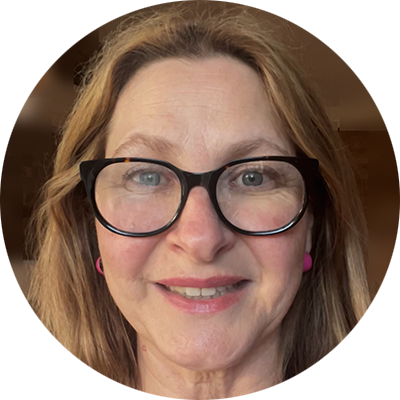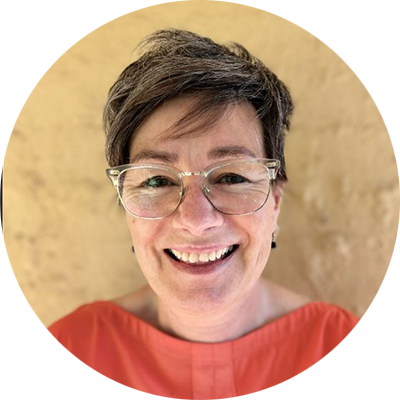Bachelor of
Nursing (Graduate Entry)
Entry requirements
Key information
VIEWING DOMESTIC
VIEWING INTERNATIONAL
Start dates
January
IELTS Overall
7.0
Speaking: 7.0
Writing: 6.5
Reading: 7.0
Listening: 7.0
Pearson Overall
66
CRICOS code
002701K
Duration
2 years full-time
Delivery mode
In person (on campus)
Bedford Park
Start dates
March
Annual fee
$44,300 (2026)
About these fees
Your fast track to a nursing career in just 2 years.
If you hold a bachelor's degree in any area and are looking to change careers towards one that helps others and makes a real difference, the Bachelor of Nursing (Graduate Entry) is your perfect choice. Become a registered nurse in just 2 years.
Flinders has been a leading provider of nursing education and research for 50 years and this course will equip you with the skills and knowledge to excel in various healthcare settings. With hands-on experience and expert guidance, you'll be ready to take on the challenges of the nursing profession. Start your journey towards a rewarding career in nursing today.
Ranked 56
in the world for Nursing
QS World University Rankings by subject 2025
No.1 in SA
in Nursing for graduate salary
and full-time employment
The Good Universities Guide 2026 (postgraduate), public SA-founded universities only
11.3%
Employment growth, Midwifery and Nursing Professionals
Jobs and Skills Australia employment projections for the five years to 2029
Secure your future in nursing.
A career in nursing offers a wide range of opportunities in various healthcare settings. With the Bachelor of Nursing (Graduate Entry), you'll be well-prepared to take on different roles within the nursing field. According to Jobs and Skills Australia, nursing is a high-demand profession with numerous job openings.
Salary
$88K
typical salary in Australia
Job opportunities
12,457
in Australia right now
Registered Nurse
Conducts patient assessments, administers medications, and provides care across community and hospital settings in government and non-government agencies.
Registered nurses (RNs) in Australia are highly trained professionals who provide comprehensive care, promote health, and support patients across diverse settings. They assess health, administer treatments, educate patients, coordinate care, and respond to emergencies. To practise, RNs must complete a nursing degree and be registered with the Nursing and Midwifery Board of Australia.
Aged care nurse
Cares for elderly patients in residential facilities, ensuring their well-being and comfort.
An aged care registered nurse specialises in providing comprehensive care to elderly patients, addressing both their physical and mental health needs in settings like nursing homes and assisted living facilities.
Jobs opportunities
2,561
in Australia, 2025
Salary
$113K
typical salary in Australia
Sources: Jobs and Skills Australia, 2025 | Seek Australia, 2024
Community health nurse
Provides healthcare services and education to communities, focusing on prevention and wellness.
A community health nurse provides medical care, health education, and support to individuals and families within specific communities, focusing on disease prevention and health promotion.
Typical salary: $95k
General Practice Nurse
Assists in general practice clinics, supporting doctors and providing patient care.
A general practice nurse works in GP surgeries, providing a wide range of care including wound management, immunisations, health screenings, and chronic disease management.
Typical salary: $93k
With further postgraduate study and work experience, careers could include:
- Nurse practitioner
- Clinical nurse specialist
- Nurse educator
- Nurse manager
- Research nurse
- Nurse consultant
- Nurse anaesthetist
What will you study to start your career in nursing?
Study a variety of core topics and get hands-on experience with professional placements.
- Year 1
- Year 2
In your first year, you'll study core topics.
Year 1 - Core topics
Your first year might include the following topics. For exact topic information, visit the course Handbook.
- Nursing management of health
- The Australian health care system
- Professional placement
- First Nations' health and cultural safety
In your second year, you'll study topics that will prepare you for your upcoming career in nursing.
Year 2 - Core topics
Your second year might include the following topics. For exact topic information, visit the course Handbook.
Accreditation or Professional Recognition
This degree is accredited by the Australian Nursing and Midwifery Accreditation Council until 23 July 2030 and approved by the Nursing and Midwifery Board of Australia. Graduates are eligible to apply for registration with the Nursing and Midwifery Board of Australia as a registered nurse on completion.
Boost your knowledge with an Honours in Health Sciences.
The Bachelor of Health Sciences (Honours) is a one-year full-time (or two-years part time) program designed to extend your research skills, critical analysis, and project management.
This program allows you to specialise in a health discipline of your choice, such as nursing, midwifery, physiotherapy, optometry, nutrition, disability, or exercise and sport science. You'll work closely with experienced researchers on projects that aim to contribute to health practices and systems.
Honours study focuses on developing your research, communication, and presentation skills, preparing you for a career in health research or further academic pursuits.
PhD Candidate Tom Brennan shares his journey studying an Honours in Health Sciences and his continuation to a PhD.
Five stars
in Nursing for learning resources.
The Good Universities Guide 2024 (postgraduate)
11.3%
Employment growth, Midwifery and Nursing Professionals
Jobs and Skills Australia employment projections for the five years to 2029
No.1 in SA
in Nursing for student support
and graduate salary
The Good Universities Guide 2026 (undergraduate), public SA-founded universities only
Discover South Australia.
Where world-class education meets laid-back coastal living. With pristine beaches, acclaimed wineries, and vibrant festivals at your doorstep, South Australia offers an unmatched student experience.
Photo credit: SATC
Get inspired.
Discover more about Flinders University’s Bachelor of Nursing (Graduate Entry)
“Flinders will provide you with the best support, guidance and learning environment. The University has modern facilities and everything that you could require – and Flinders have a great reputation for nursing graduates.”

Kalpana Dharmasiri
Bachelor of Nursing (Graduate Entry)
Need support?
International Student Services (ISS) is the first point of contact for international student support. The university also offers everything from cultural, health, and wellbeing services, to academic support.
Campus tours
Take a virtual tour of our campuses, guided by your fellow international students.
FUSA
Flinders University Student Association (FUSA) is the heart of the Flinders Experience. FUSA is where you'll find out about events, club memberships, and extracurricular activities.
Accommodation.
Adelaide has many accommodation options for international students. You can choose to live on campus, at our city accommodation provider The Switch, or in rental accommodation.
Flinders offers a vibrant, fun, supportive uni experience you’ll remember for a lifetime.
Need support?
From cultural, health and wellbeing services, to study and financial support, enrolment advice and more, we’re here to help.
Student clubs
Flinders University Student Association (FUSA) is the heart of the Flinders Experience. FUSA is where you’ll find out about events, club memberships and extracurricular activities.
Campus facilities
Flinders’ campuses are hubs of activity, with retail and food outlets, library spaces, study and chill spaces and more.
Learn from the experts.
Our incredible teaching and professional staff are experts in their fields and well-connected to the industry.

Course Coordinator
Dr Donelle Arthur
With a strong background in emergency nursing, Donelle brings a wealth of practical experience to her academic role. Over the past decade, she has taught across all years of the nursing curriculum and is deeply committed to helping students reach their full potential and thrives on seeing them succeed. Donelle is a senior lecturer and serves as the Course Coordinator for the Bachelor of Nursing.

First Year Coordinator
Rebecca Rose
Rebecca is a Registered Nurse and Teaching Specialist at the College of Nursing and Health Sciences, bringing experience in Emergency Care and Rural Liaison roles. She is passionate about preparing both current and future nursing professionals for successful and impactful careers, teaching across the undergraduate and postgraduate nursing programs.

Second Year Coordinator
Dr Omar Smadi
Omar has over 24 years of ICU nursing experience in Australia and internationally. His research focuses on online and blended nursing education, particularly through the Community of Inquiry Framework. Dr. Smadi is also active in the Learning and Teaching Academy and the Digital Learning Community of Practice and the Co-Chair of the Artificial Intelligence and Digital Learning CoP.

Third Year Coordinator
Dr Kim Milde
Kim has over 45 years nursing experience and is currently working as a Lecturer - Teaching Specialist in the CNHS. Kim has taught across the nursing and health sciences curricula and is also the current Bachelor of Nursing third year level lead.
Gain real world experience.
The degree provides you with practical experience that prepares you for the workforce.
Professional experience placements prepare you for the workplace, both simulated in simulation laboratories and in clinical venues in rural and metropolitan South Australia.
In order to complete the degree, you will need to fulfil the following preclinical placement requirements to undertake compulsory clinical placements:
- National Criminal and Relevant History Screenings
- Deed Poll
- Immunisation
- Basic Emergency Life Support
- Manual Handling
- SA Health Online Orientation Package
- Hand Hygiene Online Orientation
- BloodSafe Online module
- PrePlace Online Orientation
- Needlestick Injuries Online Package
- Fitness to Undertake Placement Declaration.
If you are unable to meet these requirements*, you will not be able to undertake your professional experience placement.
*Requirements are subject to change.
Financial Support while you're on placement?
You could be eligible for the Commonwealth Prac Placement - up to $331.65 per week.*
Begins July 2025 | Teaching, Social Work, Nursing and Midwifery
*Terms and conditions and eligibility criteria apply
- Applicants must hold a bachelor degree or equivalent qualification that does not permit them to register with the Nursing and Midwifery Board of Australia (NMBA) as a registered nurse.
- Must demonstrate English language proficiency as specified by the Australian Nursing and Midwifery Accreditation Council (ANMAC).
- Applicants must have successfully completed 4.5 units (1 topic) (0.125 full-time equivalent) of study at a higher education level focused on an understanding of body structures and function such as human biology, physiology and anatomy. Applicants that do not meet this pre-requisite could consider completing one of the below courses*:
*Completion of one of these courses does not guarantee entry into the Bachelor of Nursing (Graduate Entry). They provide students with the necessary prerequisite topic to be eligible to apply for the Bachelor of Nursing (Graduate Entry) via competitive entry through SATAC.
The Bachelor of Nursing (3 years) (SATAC code 214311) pre-registration course is available to applicants that may have had their qualifications assessed as not equivalent to an AQF level bachelor degree.
Applicants must demonstrate English language proficiency as specified in the Nursing and Midwifery Board of Australia’s (NMBA) English language skills registration standard (see details above). Selection is based on academic merit.
Before commencing study to become a registered nurse, the Australian Nursing and Midwifery Accreditation Council (ANMAC) requires you to demonstrate a high level of English language proficiency.
To do this, you must satisfy one of the following:
- Declare English is your primary language and before the course start date, you will have satisfactorily completed at least six years of schooling in English in a recognised country as indicated in the English language skills registration standard of the Nursing and Midwifery Board of Australia (NMBA). At least two of the six years must be at a secondary school level, OR
- Undertake an approved English language proficiency test no more than one year before the course start date and achieve specified minimum test results as indicated in the English language skills registration standard of the Nursing and Midwifery Board of Australia. Example: minimum of Academic IELTS 7.0 overall, 7.0 in Speaking, Reading and Listening and 6.5 in Writing. Acceptable tests are: Academic IELTS, Cambridge, OET (Nursing), PTE Academic, TOEFL iBT, OR
- Declare you hold current registration as an enrolled nurse with the Australian Health Practitioner Regulation Agency – Nursing and Midwifery (AHPRA).
When you graduate and apply for registration as a registered nurse in Australia, you will also need to meet the English language skills registration standard of the Nursing and Midwifery Board of Australia.
The Inherent Course Requirements statement is designed to help prospective students make informed decisions about whether they will be in a position to complete the requirements of the Bachelor of Nursing and/or the Bachelor of Midwifery. Prospective students who intend to enrol in this course should carefully check the requirements listed in the document below to determine whether they are able to meet them.
How to apply
Select your preferred course.
Check entry requirements.
Check individual course entries on SATAC for information on important dates.
Apply online at SATAC.
Apply directly via SATAC
Flinders students can apply to transfer to this course internally. Visit: www.flinders.edu.au/internaltransfer for more information.
- Entry requirements
- Application options
- Applicants must hold a Bachelor degree or equivalent qualification in an area other than nursing that does not permit them to register with the Nursing and Midwifery Board of Australia (NMBA) as a registered nurse; and
- Applicants must have successfully completed 4.5 units (1 topic) (0.125 full-time equivalent) of study at a higher education level focused on an understanding of body structures and function such as human biology, physiology and anatomy.
- Before commencing study to become a registered nurse, the Australian Nursing and Midwifery Accreditation Council (ANMAC) requires applicants must demonstrate a high level of English language proficiency.
- To do this, applicants must do one of the following:
- Declare English is their primary language and before the course start date, will have satisfactorily completed at least six years of schooling in English in one of the following countries: Australia, New Zealand, South Africa, United States, Canada, Republic of Ireland, United Kingdom. At least two of the six years must be at a secondary school level, OR
- Undertake an approved English language proficiency test no more than two years before the course start date and achieve specified minimum test results as indicated in the English language skills registration standard of the Nursing and Midwifery Board of Australia.
Example: minimum of Academic IELTS 7.0 overall and 6.5 in Writing, and 7.0 in Speaking, Reading and Listening.
Acceptable tests are: Academic IELTS, OET, PTE Academic, TOEFL iBT. - When you graduate and apply for registration as a registered nurse in Australia, you will also need to meet the English language skills registration standard of the Nursing and Midwifery Board of Australia.
- If you don’t meet the English language entry requirements and need to improve your English language proficiency, you can do so through our approved English Language Instruction Course for Overseas Students (ELICOS) providers.
- Please note, a test is required as evidence of English language proficiency even if an English language program has been completed. Tests accepted are Academic IELTS, TOEFL iBT, PTE Academic, and OET.
The Inherent Course Requirements statement is designed to help prospective students make informed decisions about whether they will be in a position to complete the requirements of the Bachelor of Nursing and/or the Bachelor of Midwifery. Prospective students who intend to enrol in this course should carefully check the requirements listed in the document below to determine whether they are able to meet them.
How to apply
Select your course.
Check entry requirements.
Check your eligibility for credit.
Obtain certified documents.
Submit your application and documents.
Application options.
Apply online
Follow up our step-by-step guide to help you with your application to study at Flinders.
Find an agent
Our registered education agents around the world understand the university system and will guide you through the application process.
Contact us
Get in touch with our team to discuss your preferences, career options, pathways, and course and entry requirements. We are here to ensure you have everything you need to choose the right degree for you.
Don't meet academic requirements? Don't worry. We'll help you get there.
Preparatory courses
If you lack required English proficiency, improve through Flinders University Academy or approved ELICOS providers for direct university entry without IELTS/TOEFL tests.
Flinders University Academy
If you do not meet entry requirements for your desired degree, Flinders University Academy will provide you with a direct pathway into the destination degree of your choice.
You might also be interested in other degrees.
Frequently asked questions.
Over the years, many questions have been asked by students before. For the quickest answers view our frequently asked questions or browse the full list @ Ask Flinders.
A registered nurse (RN) has completed a bachelor's degree in nursing and has a broader scope of practice, including leadership roles and specialised areas. An enrolled nurse (EN) has completed a diploma and works under the supervision of an RN, focusing on practical patient care.
Preregistration refers to the initial qualification required to become a registered nurse. It involves completing an accredited program and meeting the necessary standards for registration with the relevant professional body.
Some components of the nursing programs can be studied online, but practical and clinical placements require on-campus attendance.
Yes, practicals and clinical placements require on-campus attendance to ensure students gain hands-on experience in a controlled environment.
Yes, clinical placements are a crucial part of the nursing degree, offering hands-on experience in various healthcare environments.
Placements can be in a range of settings, including hospitals, community health centres, and specialised care units. The specific locations will be arranged by the university.
The number of days on campus can vary depending on the course structure and timetable. It's best to check with the university for specific details.
Yes, students undertaking degrees with a mandatory placement can now receive financial support through the Commonwealth Prac Payment (CPP), introduced by the Australian Government.
No, nursing is not run within the normal university semester. Students are expected to be available all year round.
A current driver's licence may be required for some placements, especially those in community settings where travel is necessary.
Yes, completing the Bachelor of Nursing qualifies you to apply for registration as a registered nurse.
- Applications are completed via SATAC
- Visit: satac.edu.au
Frequently asked questions.
Get in touch with us to discuss your preferences, career options, pathways and course and entry requirements. We are here to ensure you have everything you need to choose the right degree for you.
The type of documents you will need for your international application depends on what course you are applying for and which country you are a citizen of. Course requirements are stated on each course webpage. Examples of documentation you might expect to provide for your international application include a copy of personal identification, academic transcripts or a resume.
Once you have received your Confirmation of Enrolment (CoE) letter from Flinders University, you should apply for your visa as soon as possible as visa processing times can vary. You will receive your CoE letter after you have applied to study at Flinders, accepted your offer and paid the semester tuition fee.
No. Part-time study is currently not available for international students due to visa conditions.
No. Online study is currently not available for international students due to visa conditions.
If you don’t meet our English language or academic entry requirements, you can still gain entry to Flinders University through our on-campus pathway provider Flinders University Academy. Alternatively, you can improve your English language proficiency through our approved English Language Instruction Course for Overseas Students (ELICOS) providers.
You can apply to study as an international student directly through Flinders University or an authorised agent in your country.
If you are from one of the countries listed here, you are required to apply via an education agent. If you reside onshore in Australia, you will not require an agent even if you are from the countries listed above.
Yes. As a student visa (subclass 500) holder, you and your dependents (family members) can work up to 48 hours a fortnight when your course of study is in session. If you have started a master degree by research or doctoral degree, this rule does not apply to you and working hours are not restricted.
Our dedicated International Student Services (ISS) team provide a range of programs supporting your enrolment, study and social life, as well as a referral service to facilities on campus and within the local community.
![]()
Sturt Rd, Bedford Park
South Australia 5042
South Australia | Northern Territory
Global | Online
CRICOS Provider: 00114A TEQSA Provider ID: PRV12097 TEQSA category: Australian University








